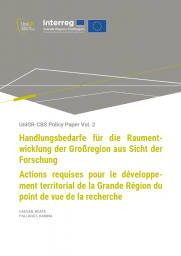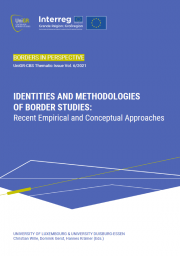Working Paper Vol. 19
San Diego’s central neighborhoods are in the midst of a municipally and privately led redevelopment phase, which is gradually progressing from one neighborhood to the other and slowly transforming lower-income communities into ‘trendy’ places for affluent populations. This is particularly the case in the neighborhood of North Park, which has been redeveloped in the last decades and has recently begun to expand eastward across two inner-city highways into the large Hispanic and Asian American community of Mid-City. Particularly along the large commercial streets that link the two communities, previously produced and habituated differences are currently re-negotiated – socially and functionally but also economically, symbolically, and architecturally –, which provokes the emergence of a (temporal) hybrid in-between zone that is simultaneously part of the one and the other neighborhood. These changes are tied to municipal and private redevelopment efforts and are of significant everyday relevance for the residents of North Park and Mid-City alike. However, these processes have not yet undergone in-depth analysis. Our paper addresses this gap by developing a theoretical framework of multi-dimensional b/ordering processes, which takes account of the multi-faceted complexity of this transitional and temporal borderland. On the basis of this framework, empirical results from a mixed-method research study (qualitative interviews and participatory observations among others), conducted between 2019 and 2022, will be used to trace how San Diego’s progressing redevelopment trend furthers the multi-dimensional shift, perforation, and re-negotiation of boundaries and thus the emergence of a hybrid urban borderland between North Park and Mid-City.



